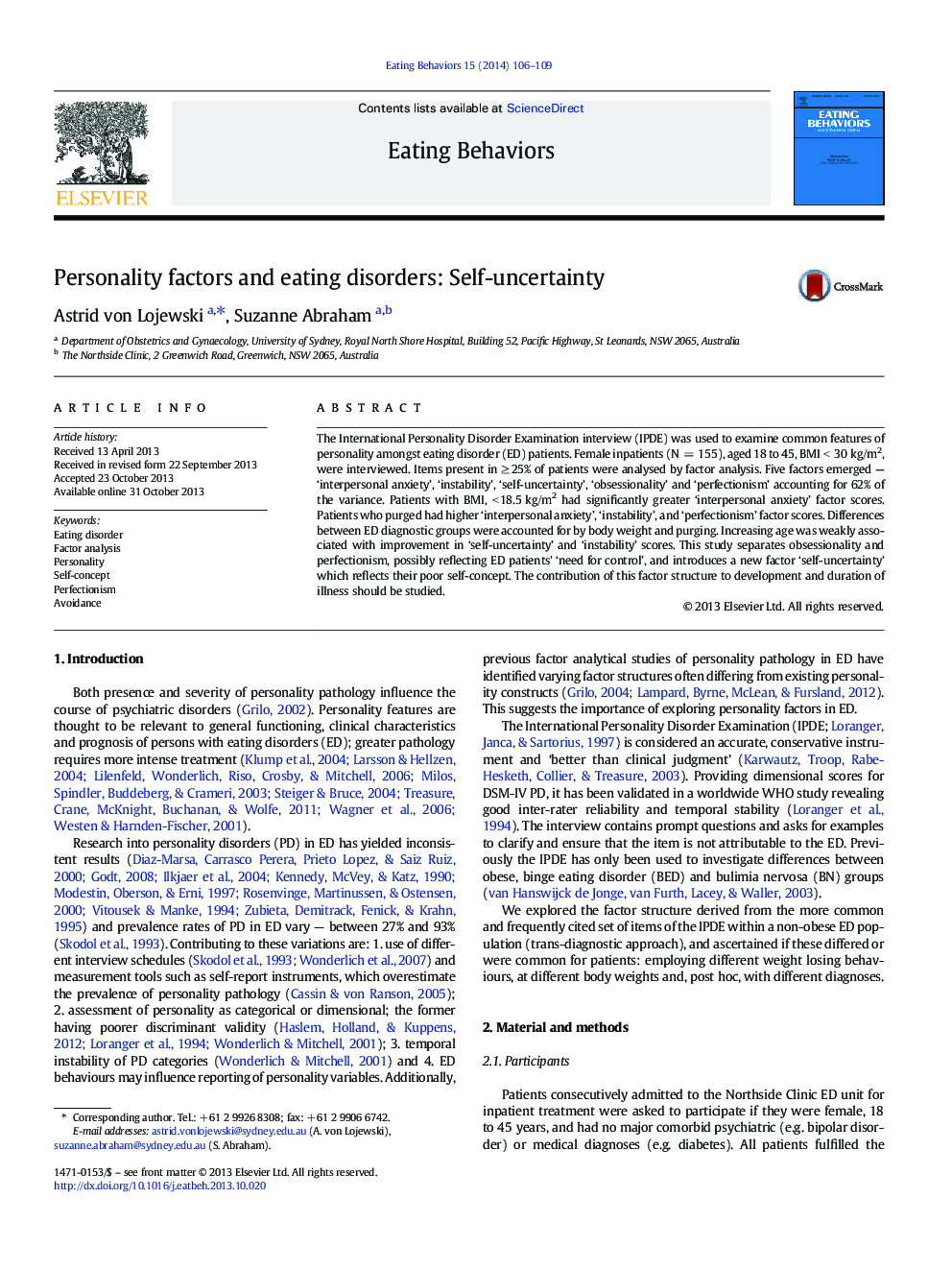| Article ID | Journal | Published Year | Pages | File Type |
|---|---|---|---|---|
| 906434 | Eating Behaviors | 2014 | 4 Pages |
•5 personality factors in ED found distinguishing ‘obsessionality’ and ‘perfectionism’.•Patients at BMI ≤ 18.5 kg/m2 had significantly greater ‘interpersonal anxiety’.•Patients purging had higher ‘interpersonal anxiety’, ‘instability’, ‘perfectionism’.•Differences between ED diagnostic groups accounted for by body weight and purging•Higher age correlated weakly with improvement in ‘self-uncertainty’ and ‘instability’.
The International Personality Disorder Examination interview (IPDE) was used to examine common features of personality amongst eating disorder (ED) patients. Female inpatients (N = 155), aged 18 to 45, BMI < 30 kg/m2, were interviewed. Items present in ≥ 25% of patients were analysed by factor analysis. Five factors emerged — ‘interpersonal anxiety’, ‘instability’, ‘self-uncertainty’, ‘obsessionality’ and ‘perfectionism’ accounting for 62% of the variance. Patients with BMI, < 18.5 kg/m2 had significantly greater ‘interpersonal anxiety’ factor scores. Patients who purged had higher ‘interpersonal anxiety’, ‘instability’, and ‘perfectionism’ factor scores. Differences between ED diagnostic groups were accounted for by body weight and purging. Increasing age was weakly associated with improvement in ‘self-uncertainty’ and ‘instability’ scores. This study separates obsessionality and perfectionism, possibly reflecting ED patients' ‘need for control’, and introduces a new factor ‘self-uncertainty’ which reflects their poor self-concept. The contribution of this factor structure to development and duration of illness should be studied.
